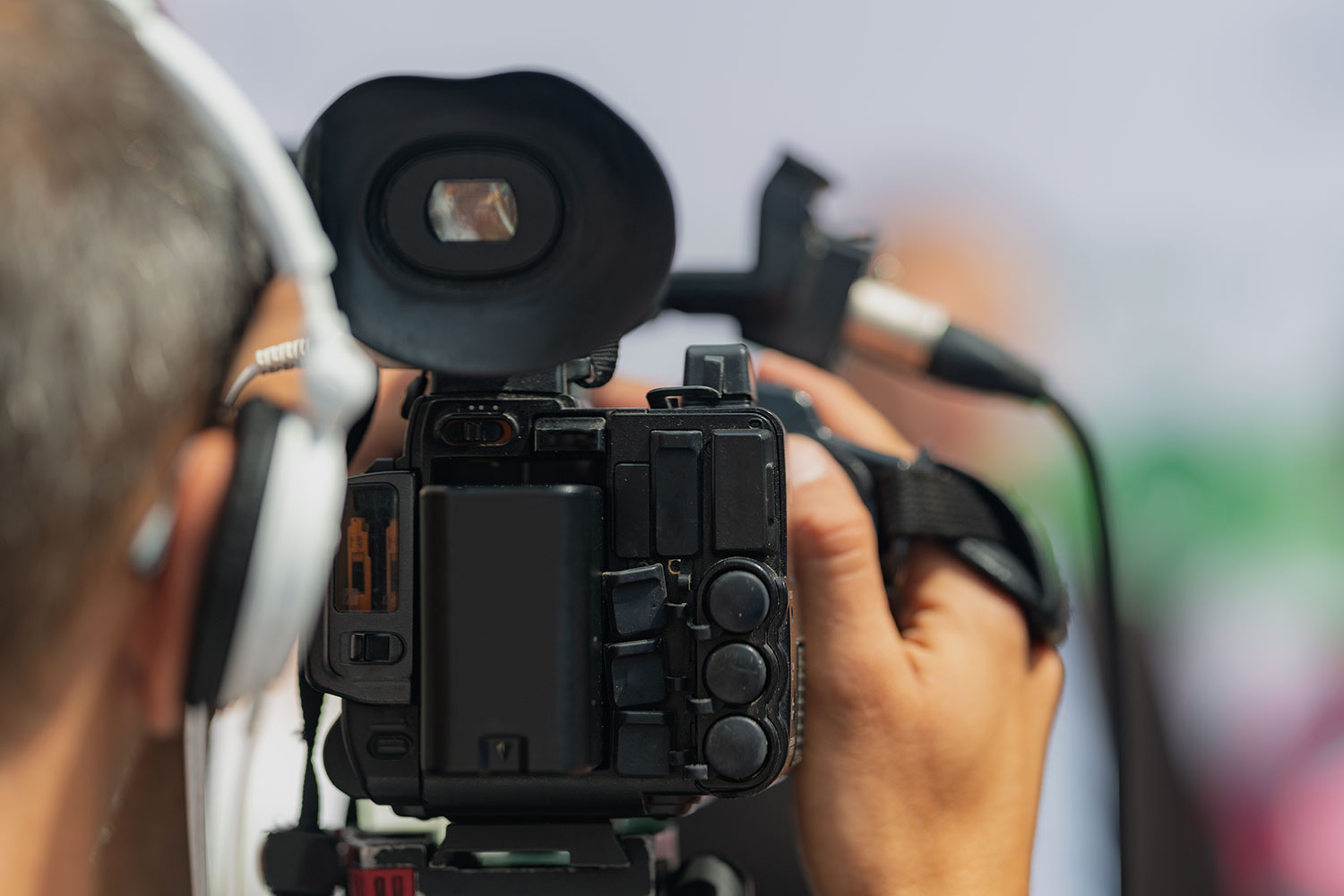The Duty of Lawful Videography in Depositions and Trials
Legal videography has actually arised as a crucial tool in both depositions and tests, offering a complex strategy to recording witness testimonies. As lawful professionals progressively recognize its worth, it prompts a deeper evaluation of how these visual documents can influence juror understandings and trial end results.

Value of Legal Videography
Legal videography plays a crucial function in the paperwork and presentation of depositions and tests. This specific area incorporates technical skills with legal understanding to produce a reputable record of procedures that can dramatically influence case end results. The aesthetic facet of legal videography improves the understanding of witness statement, enabling jurors and judges to observe not just the talked words but likewise the attitude, feelings, and body language of the witnesses.
Additionally, legal videography provides an objective account of events, reducing the potential for false impression that can happen with written transcripts alone. This aesthetic paperwork functions as an essential tool during trial discussions, helping with a more clear and more persuasive story for both complainants and offenders. Additionally, the capability to replay video clip sections during court procedures makes it possible for lawful groups to stress essential points, strengthening their arguments efficiently.
The value of lawful videography extends beyond the court room; it likewise plays a vital duty in protecting evidence for future reference, whether for charms or further legal action. Therefore, its integration right into the lawful process is important for making certain a fair and exact depiction of the realities, eventually contributing to the pursuit of justice.

Refine of Legal Videography
While catching the subtleties of depositions and trials, the procedure of legal videography includes several essential steps that ensure high-grade, exact recordings. At first, an expert legal videographer prepares by evaluating the instance materials and understanding the specific requirements of the deposition or trial. This prep work includes acquainting themselves with the participants and the context, which aids in catching essential details.
On the day of the recording, the videographer sets up the essential devices, which commonly consists of high-def video cameras, microphones, and proper lighting. Making certain ideal angles and audio quality is essential, as it straight influences the performance of the recording. The videographer interacts with lawyers and individuals to develop methods, guaranteeing that everyone recognizes the recording procedure.
During the deposition or trial, the videographer carefully records the process, paying very close attention to both spoken and non-verbal signs. This includes recording the attitude and reactions of witnesses and attorneys. After the session concludes, the videographer might modify the footage for clearness and compliance with legal standards, generating an end product that accurately reflects the process for future recommendation and usage in lawful contexts.
Benefits in Depositions
The incorporation of videography in depositions supplies various advantages that enhance the general procedure of collecting proof. One key advantage is the capability to capture witness testimonies with aesthetic and auditory fidelity, supplying a more precise representation of the witness's attitude, tone, and body language. This multidimensional method allows attorneys and juries to analyze reliability extra successfully than traditional written transcripts alone.
Furthermore, videographed depositions offer as a powerful tool for protecting testament. Ought to a witness become inaccessible for test, their recorded deposition can be played in court, guaranteeing that their proof stays easily accessible and appropriate. This element dramatically reduces the threat of losing essential details that might influence situation end results.

Finally, videography enhances the total expertise of the deposition process, instilling confidence in customers relating to the thoroughness of their lawful representation (legal videography). By leveraging innovation, attorneys can considerably boost the effectiveness of depositions
Influence On Trials
In many trials, the assimilation of videography can significantly affect the presentation of evidence and the jury's understanding. Legal videography captures witness testimonies and critical evidence in a dynamic layout, permitting jurors to engage with the material on multiple degrees. This aesthetic component boosts the storytelling aspect of a trial, providing context and emotional resonance that typical text-based proof might do not have.
In addition, video clip recordings can act as effective devices for impeachment during cross-examination. When inconsistencies emerge between a witness's prior statements and their court room statement, video proof offers an unbiased recommendation that can sway jurors' viewpoints. This immediacy and quality can reinforce the trustworthiness of a party's narrative while concurrently threatening opposing disagreements.

Future Trends in Legal Videography
As we look towards the future of lawful videography, several emerging trends promise to reshape its role within the courtroom. One substantial fad is the assimilation of synthetic knowledge (AI) in video analysis and editing. AI can streamline the procedure of determining essential minutes in tape-recorded depositions, enabling attorneys to promptly access pertinent material, thereby enhancing efficiency in situation prep work.
Furthermore, the special info rise of digital fact (VIRTUAL REALITY) and boosted reality (AR) modern technologies is expected to transform exactly how jurors experience proof. legal videography. By immersing jurors in a substitute atmosphere, these technologies can give an extra profound understanding of intricate situations, leading to more educated deliberations
In addition, the boosting need for remote depositions, sped up by the COVID-19 pandemic, will likely proceed. Legal videographers will need to adapt to brand-new software and platforms to guarantee top notch recordings in online setups.
Lastly, the growing emphasis on information safety and security will require more stringent methods for keeping and sharing video proof. As the lawful landscape evolves, legal videographers have to remain abreast of these patterns to preserve their importance and performance in the judicial process.
Verdict
In recap, legal videography serves a vital feature in the judicial procedure, enhancing the stability of depositions and trials. By recording the subtleties of witness testaments, this medium not only preserves important evidence but likewise aids in offering information effectively to jurors. The relevance of visual documentation in examining reputation and promoting cross-examination can not be overemphasized. As technology continues to develop, legal videography is poised to further transform its duty within the lawful landscape.